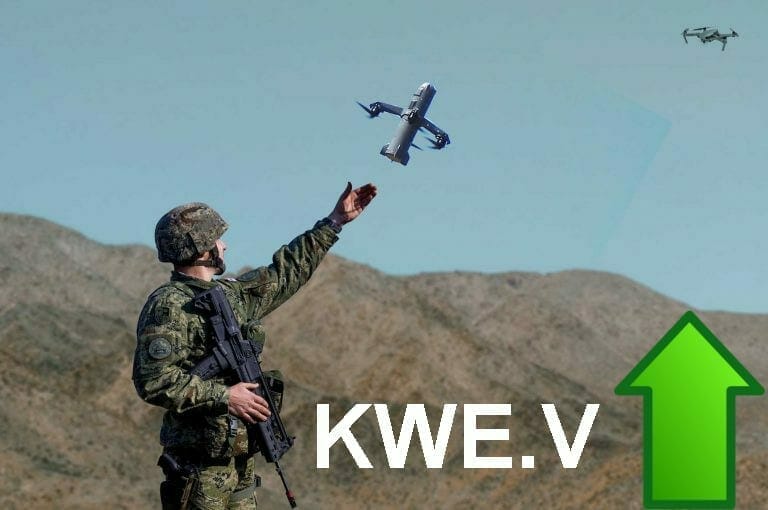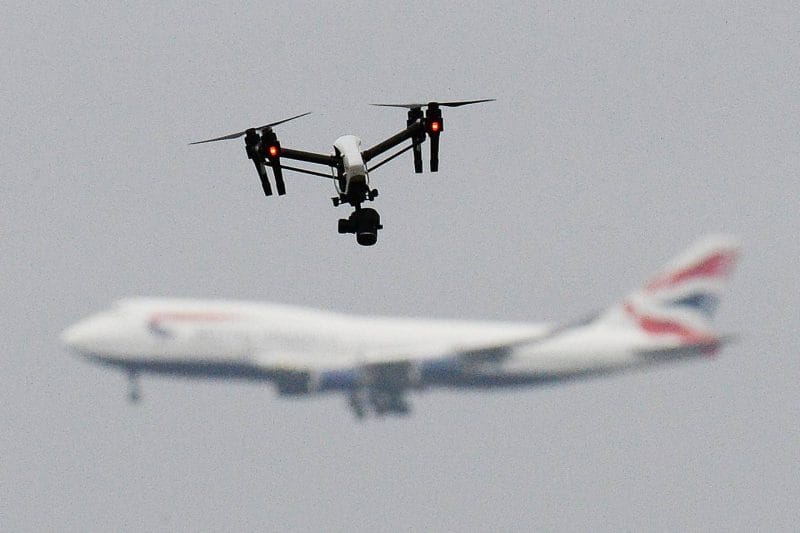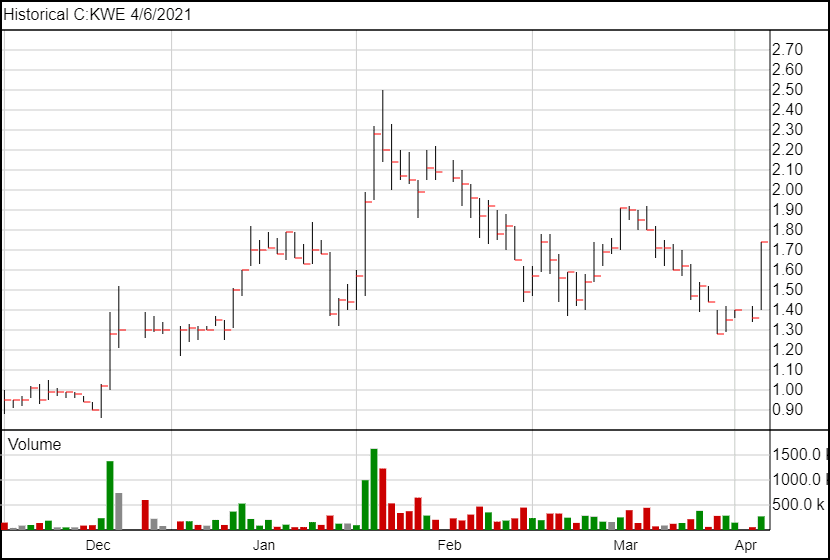KWESST Micro Systems (KWE.V) announced they had signed an amended license agreement with ArielX Drone Solutions for their counter-drone technology.
The agreement gives KWESST exclusive rights to ArielX’s technology for the US and Canadian militaries, and non-exclusive rights worldwide. The product being licensed is a portable autonomous micro-drone missile system that defends against small hostile drones called GreyGhost.
Small unmanned aircraft systems (sUAS) were recently deemed important enough to merit their own 38-page report by the US Department of Defence, and are seen as a particularly difficult challenge due to the ease with which bad actors can get their hands on sUAS.
The GreyGhost can be guided by the user or can function autonomously and has a 4km operational range. The system can identify and lock on to rogue sUAS and can hunt down hostile drones or swarms.
The deal will send ArielX 100,000 shares of KWE.V (worth ~$137,000 at the time of the announcement), with the potential for an additional 100,000 shares if certain technological milestones are met.
“This is a timely development as the U.S. and other NATO military agencies have expressed interest in our GreyGhostTM counter-sUAS drone missile and view it as a serious candidate solution to the growing threat of suspicious or hostile drones,” stated David Luxton, KWESST’s Executive Chairman. “Our GreyGhostTM counter-sUAS drone missile has been down-selected by key agencies from among dozens of contenders for upcoming demonstrations and trials because of its unique ability to track and hunt hostile drones and neutralize them with kinetic impact.”
Recreational drones are a multi-billion dollar market and are becoming more common, which will make it easier for hostile non-state actors to convert legitimate and legal sUAS into lethal weapons.
These pose a serious risk for soldiers and security forces, and special equipment is needed to deal with this threat. The US DoD has been searching for an alternative approach to dealing with sUAS, and the GreyGhost’s portability and autonomous functioning could provide it with a competitive edge.
Beyond just combat, systems that can engage with rogue drones could be used to deal with other nuisances. For instance, in December of 2018 a drone shut down flights at London’s Gatwick airport for two days, right in the middle of the busy Christmas travel period. This event cost airlines £50 million, most of which could have been saved had they had the means to destroy the drones.
Between the military and the public sector, anti-sUAS technology is increasingly important.
“The Pentagon last year established the Army-led Joint Counter-Small Unmanned Aircraft Systems Office, or JCO, and approved a set of requirements to help counter the threat posed by small drones and formalized requirements for how technology developed by industry players can seamlessly plug into a single command-and-control system. Evaluation of industry counter drone systems are expected to be ongoing throughout 2021,” said Jeff MacLeod, KWESST’s President and CEO. “In the U.S. and in 2021 alone, DoD plans to spend at least USD $404 million on counter-UAS (c-UAS) research and development and at least $83 million on c-UAS procurement(1).”
Following the news, KWESST’s share price has risen over 24% to $1.70 as of 10 am.
Full disclosure: KWESST Micro Systems is an Equity.Guru marketing client.









